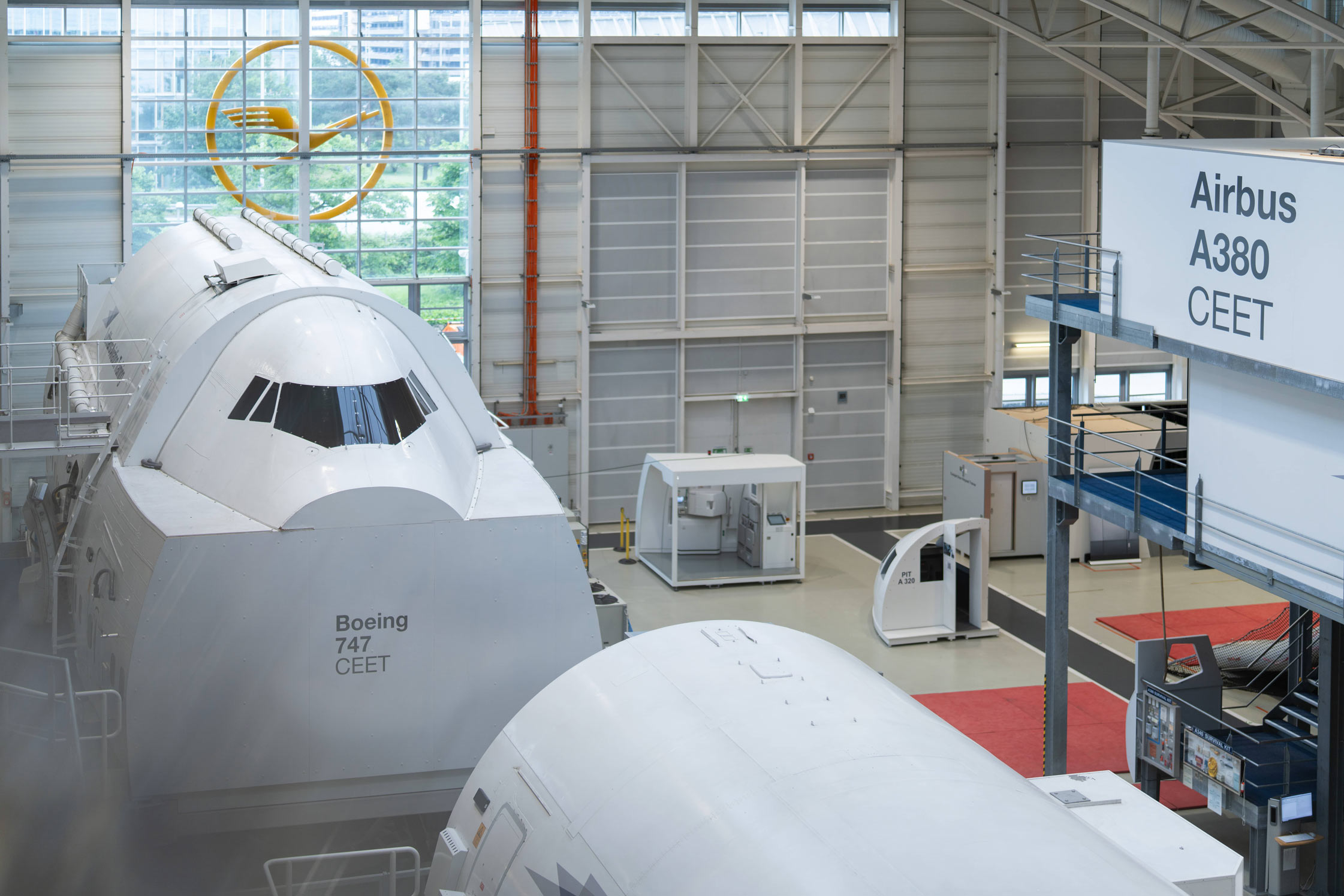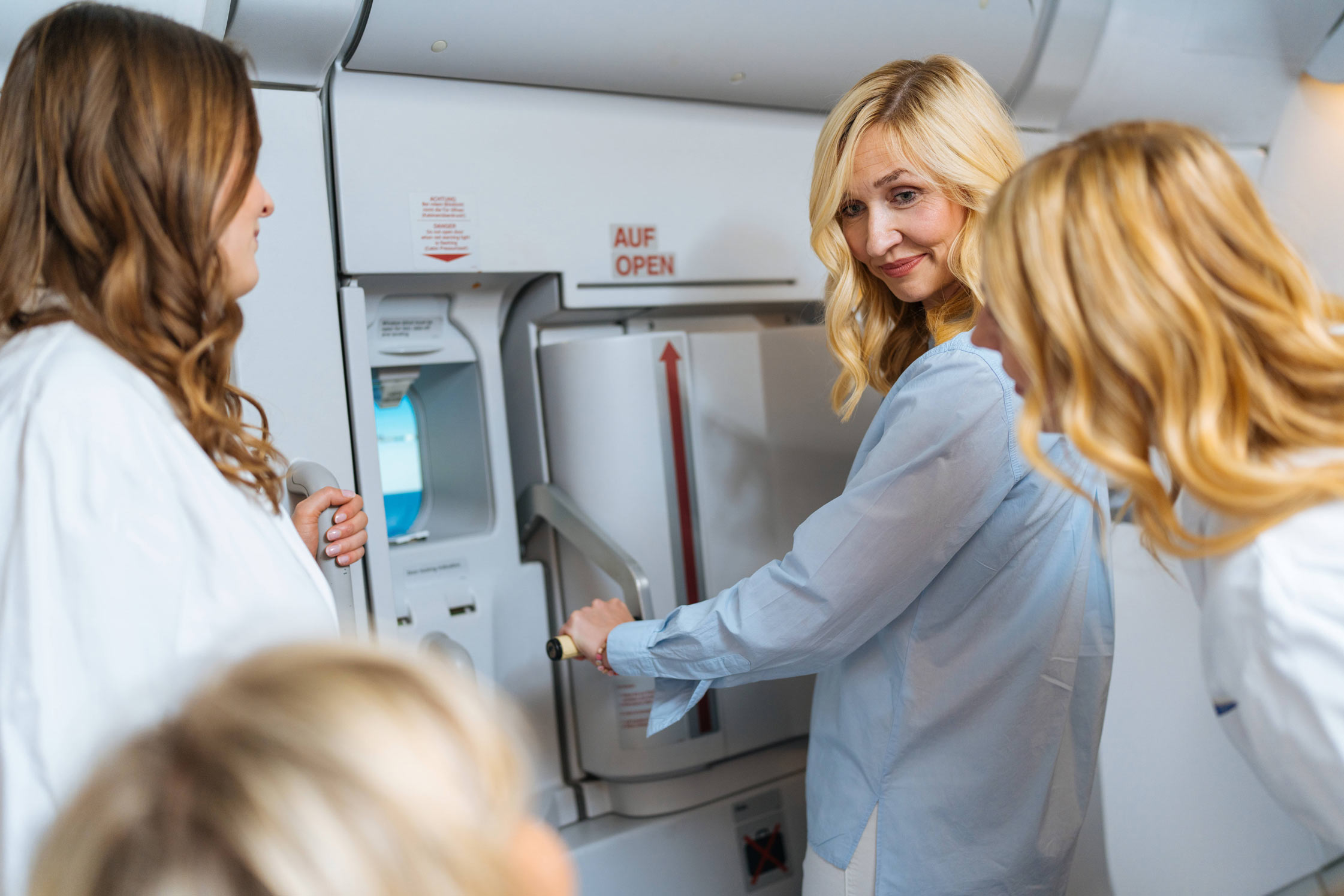Digital twin for safety training
Researchers at ETH Zurich are working with Lufthansa Aviation Training to develop a complete replica of an Airbus aircraft. This digital twin will be used for safety and emergency training of cabin and cockpit crews in virtual reality. The project partners are Martin Raubal, Professor of Geoinformation Engineering, and Peter Kiefer, Head of geoGAZElab, from the ETH-Department of Civil, Environmental and Geomatic Engineering.

Today, training for airline crew members takes place almost exclusively in elaborately reproduced cabin dummies and simulators, so-called CEETs (Cabin Emergency Evacuation Trainers). The aim of the D-CEET project is to fully replicate an Airbus A320 CEET as a “digital twin”. The resulting data model is intended to enable fully immersive training of all relevant training content in virtual reality (VR) and additionally as a tablet-based application.
In addition to improving training efficiency, the digitalization of training content is also expected to reduce environmental impact. Lufthansa Aviation Training currently operates 17 of these CEETs for the training of 40,000 crew members. The space requirement per device is 150 m² for a multi-level structure, and the operating costs are around €200,000 per year. The devices are not mobile, which in some cases means long journeys for crew members.
"Digital twins have enormous potential for simulating and testing processes and actions in the real world in advance”, says Professor Martin Raubal. “Our project poses the exciting research question of whether and how the training requirements for the safety and emergency training of cabin and cockpit crews can be implemented in virtual reality and how efficient such training is.” To this end, the research team uses new technologies, such as eye tracking and physiological sensors, to draw conclusions about the cognitive load on the trainees and the effectiveness of the training.
The three-year research project is funded by the German Federal Ministry of Digital Affairs and Transport with around 1.5 million Euros. The kick-off event for the research project took place on 11 and 12 June at Frankfurt Airport.

